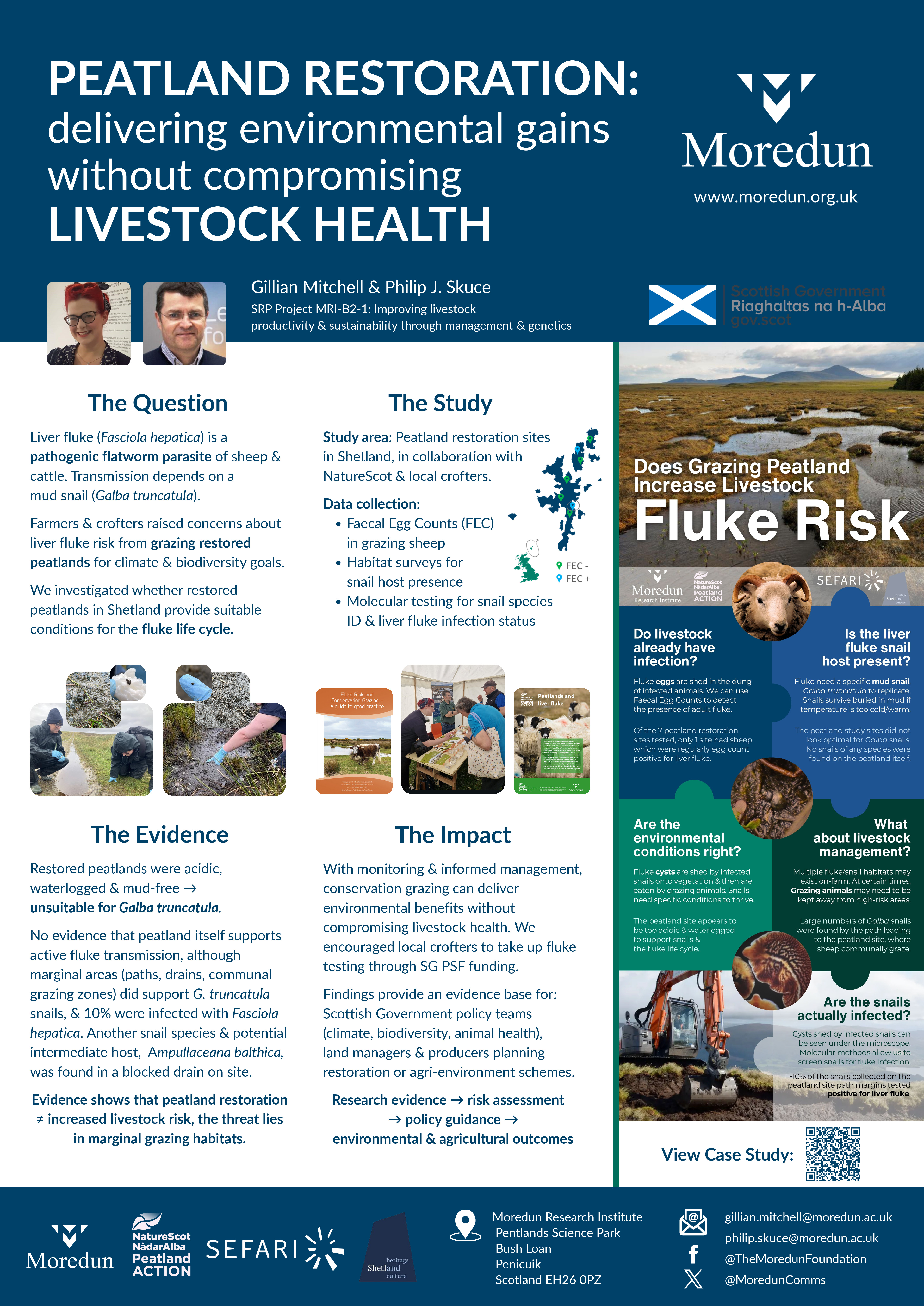Download
Description
This study investigated whether peatland restoration increases liver fluke (Fasciola hepatica) risk to livestock. Conducted in Shetland with NatureScot and local crofters, the research combined diagnostic testing (faecal egg counts), habitat surveys, and molecular testing of mud snails (Galba truncatula). Restored peatlands were found to be acidic, waterlogged, and largely mud-free, making them unsuitable for the snail host. Consequently, infection risk on restored sites was low, with fluke presence confined to marginal grazing areas such as paths and drains. The research demonstrates that peatland restoration can deliver significant environmental benefits—including carbon sequestration and biodiversity gains—without endangering animal health, provided livestock are regularly monitored. By providing evidence on actual risk and informing grazing management strategies, this work directly supports Scottish Government policy, guides producers and land managers, and underpins conservation grazing schemes, illustrating a clear pathway from research evidence to practical policy and environmental impact.
